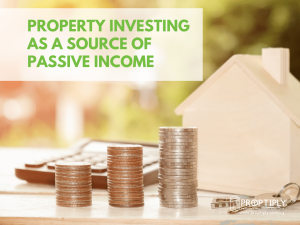
Investing in property is a well-known way of generating passive income. To do this, many investors build up a portfolio of rental properties over time. This could come from industrial property investment, residential property investment or even investment in co-living spaces.
Motivations for earning passive income
Passive income is income that goes into your pocket without you having to actively work for it. In other words, your money keeps on working for you instead of you working for money.
Generating passive income can help you to achieve certain goals. From building up your retirement fund and paying for your kids’ tertiary education to setting it aside for a rainy day, there are certainly various ways of putting passive income to good use. Some even think of it as additional “pocket money” that they can use to splurge on shopping or travel.
Many also see passive income as a way of achieving financial freedom. When they have financial freedom and don’t have to work full time anymore, they can finally free up their own personal time to pursue their interests, fulfil their personal bucket lists or spend more time with family.
If you are patient and savvy enough, you can steadily build up a portfolio of investment properties over time that can give you a steady stream of property rental income. This additional financial stream can help see you through your retirement years.
Putting in the work
It’s a common fallacy that you don’t need to put in much effort when it comes to property investing. First, you need to have a property investing wealth mindset and the motivation to succeed.
To generate that passive income from property investment, you need to get educated, do your homework, pound the pavement and take an active role to ensuring that your investment is a sound one.
You could be spending hours searching for properties, screening tenants, making repairs to ensure that the unit in good rental condition, going through all the legal paperwork and sorting out the financing. Plenty of planning and research goes into property investment before you can execute your strategy.
Whether you have a residential, commercial or industrial investment property, you still need to play an active role in maintaining the property, keeping in close contact with your tenants and generally being on hand to manage any issues which should arise. This will help keep tenants happy and reduce tenant turnover. Keeping your property in good condition through regular maintenance and repairs will also preserve the value of your property.
Conclusion
If you’ve decided to earn financial freedom bit by bit over time through a stable method of building a portfolio of passive income generating properties, you have to make sure you have the commitment to be in this for the long haul. Always be willing to learn, do your due diligence and cover all bases.